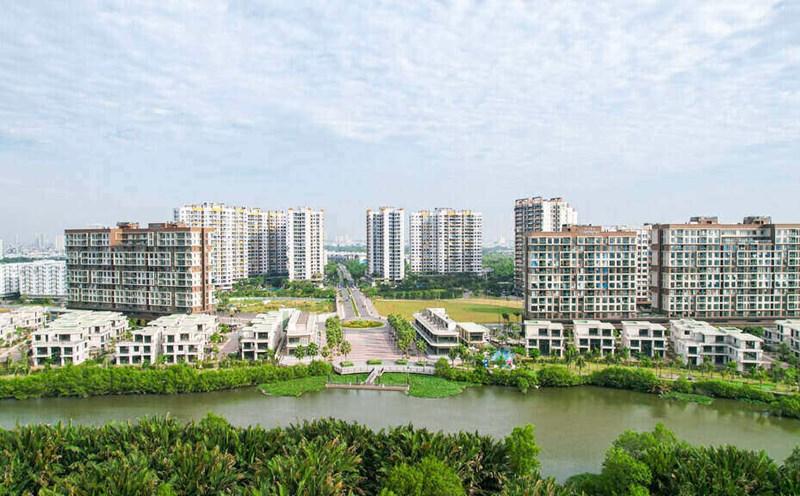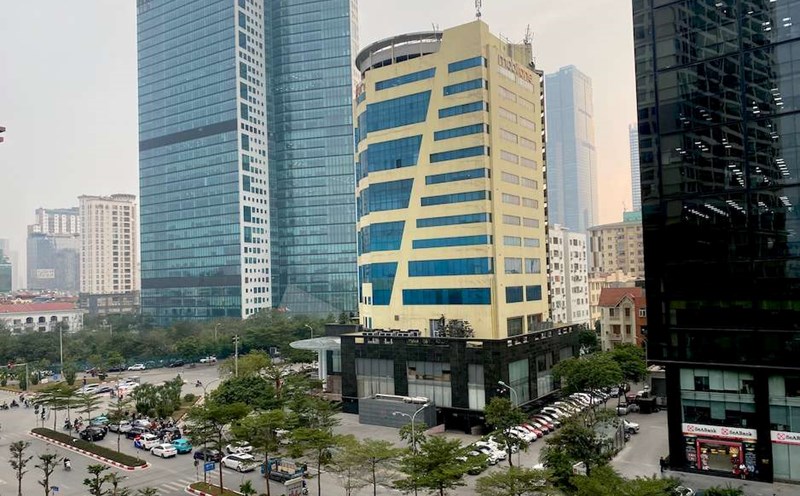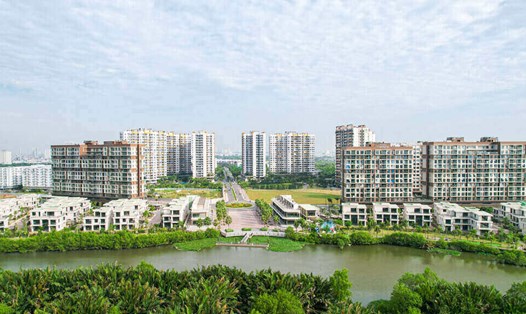Removing obstacles for "frozen" real estate projects
Recently, the real estate market has encountered some difficulties, typically the legal entanglement of projects. Many businesses have encountered difficulties in determining land prices, site clearance, land allocation as well as mobilizing credit loans, capital from issuing corporate bonds, etc., leading to projects that have been or are under construction having to be temporarily suspended, delayed or delayed.
At the end of November 2024, the CT1 apartment building with a scale of nearly 600 apartments in the Thuong Thanh social housing area, Long Bien district (Hanoi) was granted a construction permit by the Department of Construction. In early December 2024, the social housing project at land plot NO1 of Ha Dinh urban area (Thanh Xuan district) began construction after a period of being abandoned and slow to implement.
Previously, due to some problems arising from the joint venture investor requesting to adjust the planning, this project had to comply with regulations on management, use of State capital and approval of fire prevention and fighting, leading to delays in progress. The City People's Committee issued a decision to impose administrative penalties on the joint venture investor, and assigned the Department of Construction to study, advise, and gradually resolve the problems harmoniously.
The project has started construction on schedule, becoming one of the few projects to start construction in 2024. This social housing area is also an important milestone in the efforts to implement the social security policy of the Party, State and Hanoi City.
There are many reasons for the slow implementation of projects, mainly due to problems related to unclear legal regulations and procedures, changes or financial difficulties of investors. Many projects have been completed but cannot be sold because they have to wait for the completion of financial obligations related to land use fees, due to difficulties in determining land prices.
Strong sanctions are needed to deal with projects that have been shelved for too long.
Speaking to Lao Dong, National Assembly delegate Pham Van Hoa (Dong Thap delegation) emphasized that land speculation and price inflation are not only taking place in the inner city and the center of big cities, but also in areas far from the city. In particular, through auctions, there is a phenomenon of a group of people and organizations joining together to set high prices and abandon deposits to create a new price level, causing a virtual fever in the real estate market.
“The most desirable thing for people is to have housing. Therefore, it is necessary to develop the rental housing market, worker accommodation, the Government and localities should allocate preferential land resources for businesses to build housing areas for workers,” the delegate proposed.
According to the delegate, there are many unfinished and abandoned real estate projects, causing waste of resources while people are lacking housing. There are many reasons, including Vietnam's policies and laws changing rapidly, many legal documents are inconsistent, overlapping and complicated.
Sharing the same view, delegate Nguyen Thi Viet Nga (Hai Duong delegation) said that it is necessary to create a real estate supply source. In particular, the fastest and most timely source of supply is to remove obstacles of projects that have been and are being implemented but have encountered some obstacles and have stalled. To do this, it is necessary to review and remove legal obstacles, with a clear and unified viewpoint, that is, to look at the overall benefits, the common benefits of society to compare between stopping the project and continuing to implement the project, which option is more beneficial.











